Editor’s Note: One of the coolest parts of indie travel is the people you meet. There are some pretty awesome people doing some pretty extraordinary things, and writer Helen Moat put this article together to highlight 7 different travelers (or traveling couples) and see how the people they met along the way impacted their travels, and ultimately, their lives.
If you want to start making your own memories, sign up today for Plan Your RTW Trip in 30 Days and start receiving email lesson plans tomorrow – it’s free!
![]()
Cycling from Scotland to China
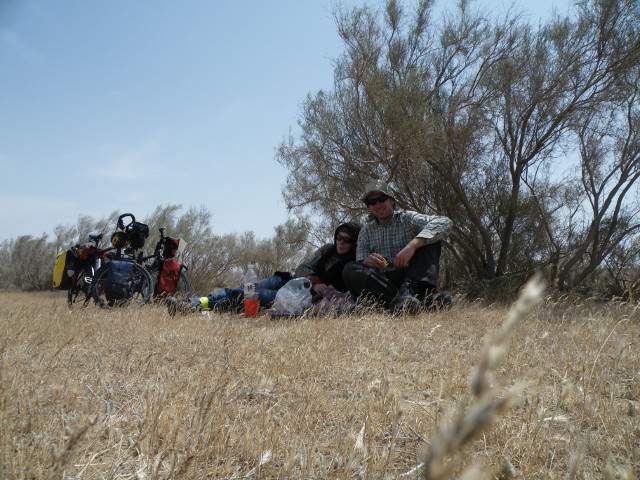
Helen and Ed’s story: Geography teacher Ed exchanged his school maps for the real thing. Together with partner Helen, they cycled from Scotland to China. Making their way through the Middle East, particularly Syria, Helen and Ed were constantly surprised and overwhelmed by the warmth and generosity of the people there. Helen explains how travelling by bike allowed her to connect with a world often falsely portrayed by the media. Here is her story.
We’d planned and saved to do a big trip for a long time, pretty much ever since we had got together 5 years previously. We knew we wanted to do something that was both physical and adventurous. Then Ed came back from work one day and said a teacher friend had cycled across South America. That was that. We decided to cycle to China and bought our bikes. I actually never believed we would get to China until we crossed the border!
Traveling by bike was the ideal way to get beneath the skin of a country. You are moving so slowly, you absorb things you’d zip past in a car – and it’s easy to stop if you see something.
Traveling by bike was the ideal way to get beneath the skin of a country. You are moving so slowly, you absorb things you’d zip past in a car – and it’s easy to stop if you see something. You’re also forced to stop in places you’d never bother with in a motorized vehicle – like small villages where nothing happens. On a bike you attract lots of attention and people talk to you; you are vulnerable so you have to ask people for help and engage with what’s going on. You can’t resort to the bubble of safety that is your car, bus, or train.
We were invited into homes for dinner or to stay the night over and over again. There were so many powerful experiences: being taught how to cook traditional Iranian food in the city of Mashhad, for example. Then there was the surreal encounter in a remote corner of Central Asia where we had, unbeknownst to us, set up camp in Tajikistan, opposite some Afghans.
Traveling through the Middle East changed my perception of the world greatly. Maya Angelou wrote, “Perhaps travel cannot prevent bigotry, but by demonstrating that all peoples cry, laugh, eat, worry, and die, it can introduce the idea that if we try and understand each other, we may even become friends.” I really believe this.
The twin towers fell the day before I started university, so I’ve lived out my whole adult life with the backdrop of the so-called “war-on-terror.” We cycled through lots of countries that people in the west are very afraid off – Syria, Iran, and the Kurdish areas of Turkey. Even before I set off I was fairly sure that, contrary to the general media portrayal of these places, most people who live in them are not bandits, murderers, or terrorists, just everyday people who are living their lives. Having cycled to China, I really know this to be true now.
To find out more about Helen’s experiences, check out her blog.
Sailing across the world
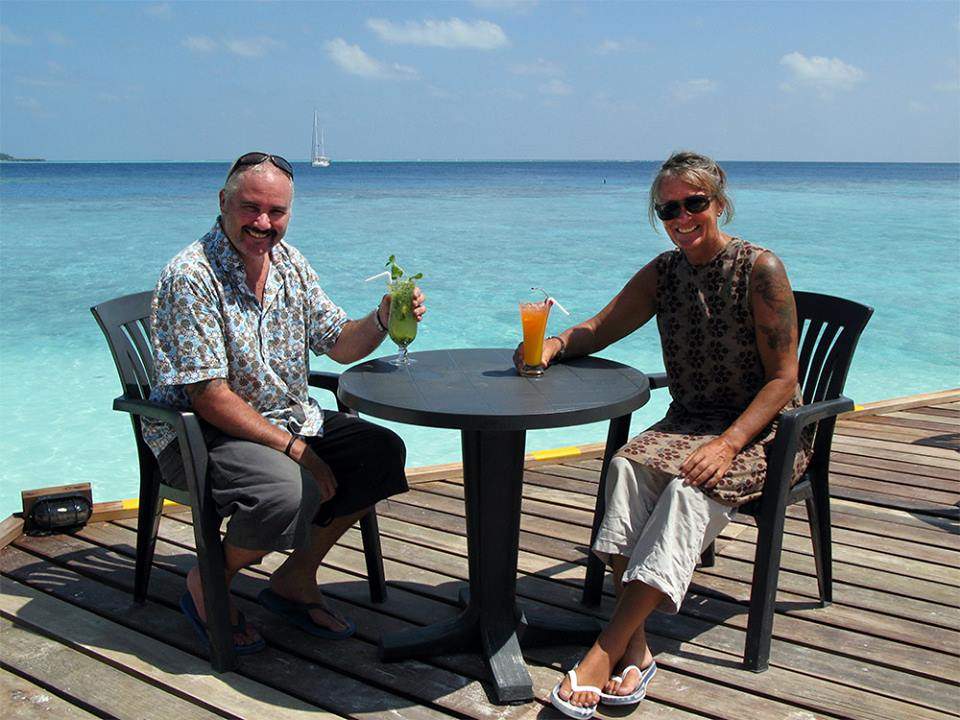
Liz and Jamie’s story: “This is the story of two people who met, fell in love and went to sea to spend the rest of their days together. Whilst there is a beginning to this story, there is no middle or end for it’s an evolving journey,” Jamie explains on their blog. Fed up with the rat race, Liz and Jamie bought a boat. Traveling from Turkey, they made it as far as India, planning to stay put for a few months. Three years later, they’ve just hit the waves again. Leaving India behind wasn’t easy: they’d fallen in love with this crazy, vibrant country and its people. Liz continues the story:
The constant movement of my parents instilled in me a wanderlust, but I didn’t identify it until later in life. Fast forward to the new millennium – I was a successful sales director, tired, and burned out. It made me determined to leave the rat race behind. As Jamie had his heart set on a life on the ocean, we hatched a plan to buy a boat, quit the city life, and head for the seas – all within a month of meeting. Nine months later, we’d bought Esper, and three years later we were living out our dream aboard our boat.
In India, I found out that you can’t beat living with the locals for an extended period to get under the skin of a place. It was the people there who especially made me question and reassess western values (not always favorably).
In India, I found out that you can’t beat living with the locals for an extended period to get under the skin of a place. It was the people there who especially made me question and reassess western values (not always favorably). The three years there has made me a more tolerant and patient person. I’ve learned that everyone, no matter what their circumstances, is trying to make a good life for their families, and they just want to “get along,” even in supposed “no go” places like Yemen and Eritrea. The UK “news” and received wisdom often gives a skewed version of countries which bears little resemblance to the reality of daily life.
Saying goodbye to friends in India we’ll probably never see again had me choked. The pontoon at Kochi marina was a hodgepodge of our close friends, our Indian “family,” and the marina staff. Nazer, our fixer at the marina, and his entire family came down, an unexpected rarity They all waved us off as Esper slipped her lines, and it was at that moment it struck me exactly how much I would miss India.
Author’s Note: At the time of writing, Liz and Jamie have just made it across the Indian Ocean to Malaysia. They’d originally planned to sail south towards Africa but after battling raging seas for 4 days they limped back to Male, their boat badly damaged. At times on the trip they’d feared for their lives. Undeterred they took the decision to travel east to repair their damaged boat. As Liz always says, “Sailing plans are set in jelly”.
Their combined sailing blog is found here.
Living in rural Thailand
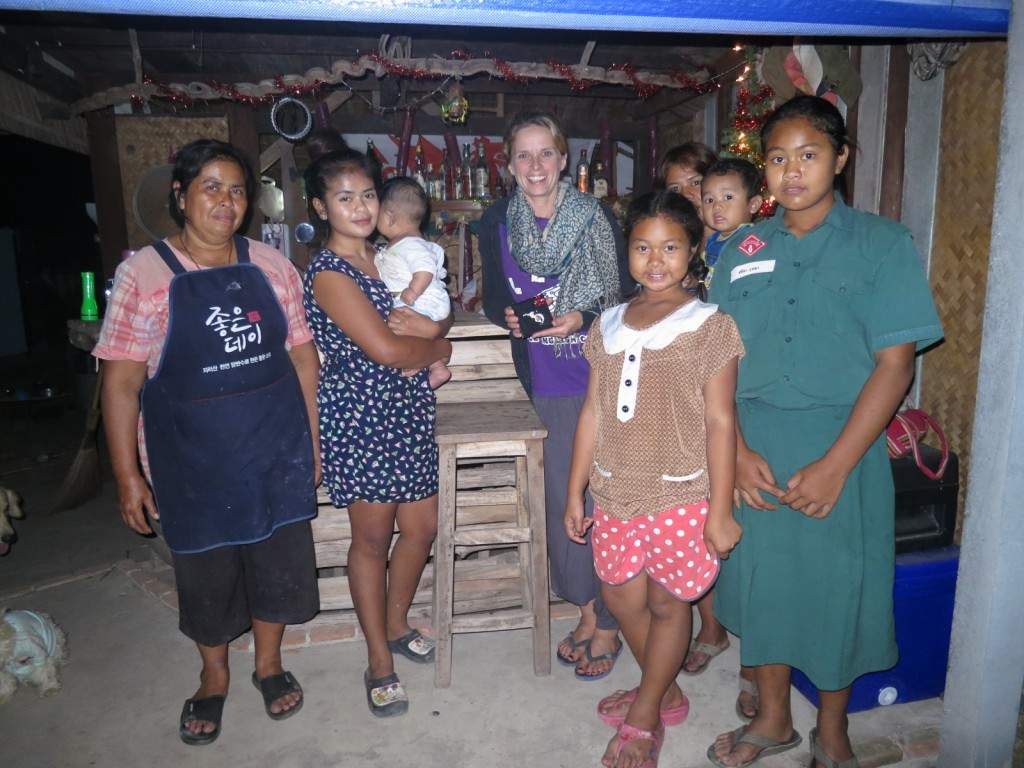
Annie’s story: Annie decided to take a gap year on the cusp of 40. Four years later, and she’s still not returned home. Why? Annie fell in love with a Thai and is now living in an A-frame hut Deaw built for her in rural Thailand. “You can’t help but get deeply involved with the local community here,” Annie explains. “I’ve lost count of the number of weddings, monk ceremonies, and funerals I’ve attended.” This is Annie’s experience of Thailand.
I met Deaw on my first evening in Thailand. I was on a beach looking for a restaurant where I could buy a drink and get some food. The restaurant where he worked was not yet open, yet he hopped on a motorbike to go to a shop nearby to buy me a beer. It’s his willingness to go that extra mile for people, even strangers, that still astounds me about him. Deaw became a good friend first. It’s not always been an easy relationship, but it’s an interesting one.
If you stay in a place long enough, the irritations of daily life start to surface. As tourists we’re often treated to a romanticized view of a place and are shielded from the harsh realities of a culture. Corruption and influence are still the building blocks of “success” in Thailand and tend to outweigh ability and ingenuity.
For me, the best of this country lies with the regular people who work daily to get by. Here I’ve met the warmest, funniest and most generous people ever. Living in Thailand has enriched my life enormously, and that’s largely due to the people I’ve met here.
It’s humbling to watch the generosity of people who have very little, yet still support others who have even less.
I live in a small community, and I’m therefore very much at the chalk face of daily life. Life and death here seem so much more evident than in the West, where we retreat into our homes and private lives most evenings. Here, life takes place largely outside, and everything’s visible: seeing children playing, being bathed, people cooking and eating, or the elderly being taken care of by their families. I have been included in way more life events here in Thailand than I ever have in the UK. I’ve lost count of the number of weddings and monk ceremonies I’ve attended and have also been to more funerals here than I have ever been to in my life previously. I think it increases your awareness of life and death and of the change of fortunes and seasons and so on. I’m far more aware of life, the meaning and the passing of it, than I ever was previously.
I’ve not necessarily become more spiritual living in Thailand, but I’ve become more aware of the different fortunes of people. Poverty is harder to ignore and turn away from here. It’s humbling to watch the generosity of people who have very little, yet still support others who have even less. I try now not to turn away from need now – and follow the Thai example.
When I think about it, living amongst another culture has made me more open-minded in some respects, but also made me aware of how deeply ingrained some of my own attitudes are. Ultimately, living in Thailand has made me more fatalistic about things. I still think about the future, but try to control it less. (Time will tell whether this is a wise or foolish strategy!)
Find out more about Annie and her experiences in Thailand by checking out her traveler profile and reading her website
Working my way round the world
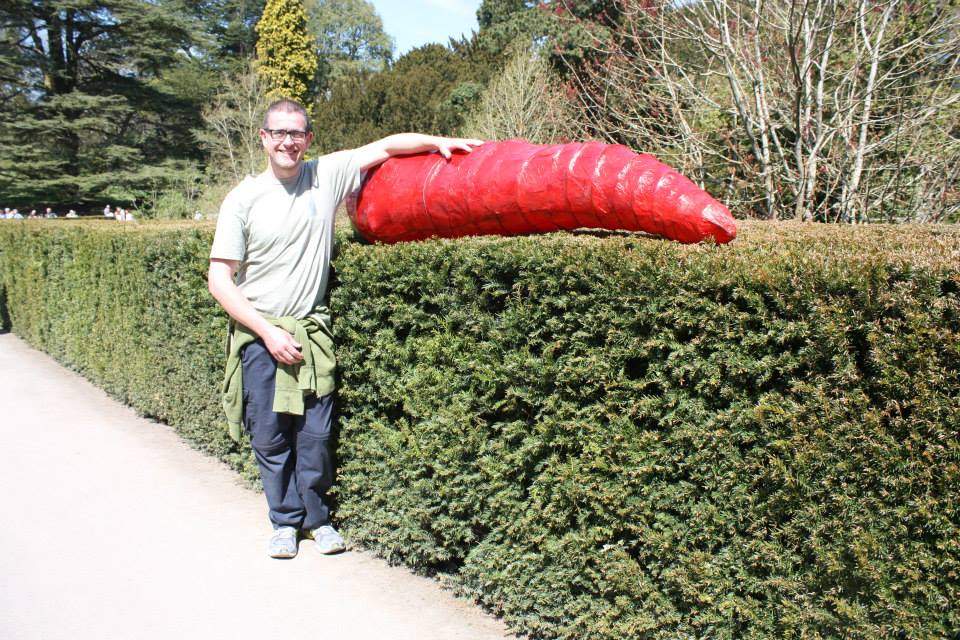
Ian’s story: Ian’s paid for his travel obsession by working his way around the world, no job too bizarre or menial for him. He’s done everything from cleaning swimming pools to painting and catering. But it’s his experiences of WWOOFing and working on a Kibbutz that have had the biggest impact on him. “As a result of those experiences and the people I’ve met, my philosophy to life has changed dramatically.” This is his story.
I’ve done all sorts of work overseas: manufacturing detergents, working in sunflower fields, farming lychee, mango, courgette, and sugar cane in Oz and NZ. I’ve sold door-to-door in Melbourne, worked in a hostel in Taupo, and as a kitchen porter in Queenstown.
Through WWOOFing, I visited places backpackers wouldn’t normally go to and met an eccentric collection of dreamers and nomads.
In Australia, I helped out a Seventh Day Adventist vegan lady who ran an organic smallholding in Queensland, staying in a disused railway carriage I shared with a number of bright green tree frogs!
On the Queensland/NSW border, I helped a young couple clear a patch of rainforest to set up an organic bamboo farm. We got eaten alive by leeches, but there was always plenty of food, beer, and cigarettes, and I was treated as part of the family.
Working abroad meant that I stayed in a place for an extended period of time, so I was able to see what made local people tick…It enabled me to see issues from a number of sides and to form opinions based on my own experiences.
In contrast, I stayed in a million pound house in Rotoroa, New Zealand, perched high on the hills with a hot tub and a ten million dollar views. All this was in exchange for a week walking wet and wild hillsides mending broken fences and feeding sheep.
Working abroad meant that I stayed in a place for an extended period of time, so I was able to see what made local people tick. I made friends with people who I would never have met in normal travel circumstances.
In Israel I worked with secular Jews and argued with religious Jews. I came into contact with Christian Druze Arabs who were Israeli citizens and visited the West Bank where I talked to Palestinians. It enabled me to see issues from a number of sides and to form opinions based on my own experiences.
I formed a lot of important and lasting friendships in Israel. I made friends with a Shiatsu practitioner who had been a tank commander for two weeks a year but had chosen to go to military prison rather than continue his military service.
I was friends with an ancient Hungarian architect who had been interred during WW2 and now lived in a teletubby-styled home he’d designed himself.
I knew a recovering heroin addict from Switzerland who’d smuggled booze into the UAE, worked with street kids in the Phillipines, and was heading home to face the music for previous drugs offences.
It was the kibbutz experience, above all, that stimulated an interest in travel that’s never gone away. It also changed my philosophy of life dramatically. It changed my life.
A love affair with Greece
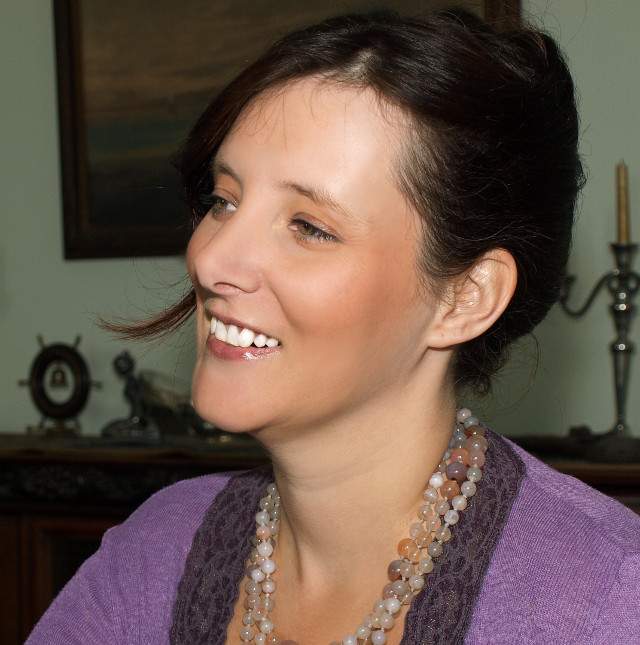
Bex’s story: Foreign Language English teacher Bex kicked against the expectations of family and friends: a career, marriage, mortgage, and children. Instead she hit the road. She has taught her way around the globe from Sri Lanka, Cambodia, Egypt, and Greece, and even the crew of a container ship in the middle of the Atlantic Ocean. It’s Greece that has drawn her back though. “I just love this beautiful country and the people who’ve let me into their homes and hearts.” Here are her thoughts on living the ex-pat life.
After years of sporadic travelling, one year living in Australia when I was nineteen, and four months volunteer teaching in Sri Lanka aged 30, I finally left the UK for good to undertake a paid teaching placement in Greece. Having a TEFL qualification was like a passport to the world. With it I discovered I could travel to most places in the world and teach. I’d spent two years in Greece teaching English; then headed to Cairo for three months. I’d expected to stay there longer but my love of Greece eventually drew me back.
Because I feel at home in Greece, I couldn’t actually say that it has changed me, but it’s definitely helped me to become the real me.
I never felt comfortable with the nine-to-five job, two-weeks-a -year holiday, married-with-kids lifestyle, and being in a foreign culture is like breathing air: it comes naturally to me. When I think about it, it feels more natural to be in Greece than in my own country where I feel claustrophobic… not able to be “me.” I’m very outspoken by British standards, so I fit right into Greek culture. Generally, I prefer other cultures to my own.
Since living in Greece the pay has significantly reduced over 4 years, but my quality of life and friends make up for that. For me, the benefits are not material anyway…I’ve had the good fortune of being able to teach very young learners right through to adults – and not just the English language, but introducing them to a different culture, too.
My friendships with Greeks also enrich me – like my work colleagues. The fact is, Greeks open their homes and hearts to you once they trust you, and they’re my extended family.
Living here, I get to see the real Greece, not what the media portrays. I see how people struggle under the present austerity drive. I don’t think Greeks are just moaning, like outsiders seem to think. It is not all sunshine and sangria – or ouzo – yet the sense of community is still strong here. For me, the good still outweighs the bad. Because I feel at home in Greece, I couldn’t actually say that it has changed me, but it’s definitely helped me to become the real me. Paradoxically, because there are still frustrations to living abroad, I appreciate my home country more now. I don’t becry my country as much as I used to.
To find out more about expat life in Greece, check out Bex’s site here.
Connecting with music fans around the world
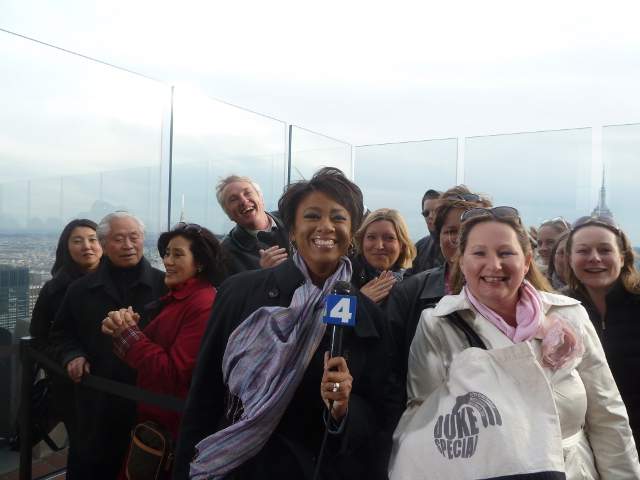
Mike and Gail’s story: Along with Helen, Mike and Gail, two scientists, are passionate about indie music. Their interest in live music has taken them all over the world from the US, Czech Republic, Switzerland, and Austria to Spain and Ireland. They have connected with many fans along the way. Their shared passion with music lovers across the world has given them the chance to make life-long friends and to see a country through a local’s eyes. This is their story.
With our children old enough to fend for themselves and the mortgage paid off, we had the freedom to follow our passion for live music around the world. When you find others that share the same musical taste, there’s an immediate connection. This has been our experience in Europe, America, and most recently in New Zealand.
We’ve connected with music lovers through fan sites or social media, and it’s not been long before we’ve met up at a gig, often in the most obscure places all over the world. Indeed, without knowing the musical connection, it would be very difficult to understand what the common link was between such people of varied ages, background, and geographic location. Most bystanders assume it’s some sort of family gathering, and in a way, it is.
For example, a disparate group of us from the USA and Europe, many of whom were meeting for the first time, traveled together in a 15-seater van and shared hotel rooms in Poughkeepsie, NY, Northampton, MA and Atlantic City, NJ in the winter to see Rufus Wainwright.
Fans are amazingly hospitable and very happy to share their local information and advice when an event occurs in their hometown. To keep costs down, it’s very common to be offered a sofa or to share a hotel room with a complete stranger.
One of the most bizarre occasions was the time we arrived on Tory Island in Ireland for a Duke Special gig. Patsy Dan Rogers, the king of the island, was there to greet our boat! He told us how he was looking forward to accompanying Duke Special on his button accordion, which he duly did – but only after midnight, when the nightlife really gets started on the island.
Helen: Gail, Mike and I met as a result of our shared love of music. Once we met up in the small town of Brugg in Switzerland, not the kind of town tourists visit, never mind the Swiss. But there we were, six British fans who’d come to see Duke Special play in the old Salt House. Hanspeter, the organizer, was thrilled to see this group of foreigners who’d traveled hundreds of miles to attend the event.
After the gig Hanspeter laid out a banquet of food in the hall and invited us to it along with the musician and his Swiss friends. We all got on so well that Hanspeter invited us for coffee at his home the next morning.
Following an independent musician across the world – not one who’s made the big time and plays the large arena – but one who’ll take you off the beaten track to the unlikeliest venues in the unlikeliest places. You never know where you are going to end up or who you’re going to meet.
Sri Lanka: A turning point
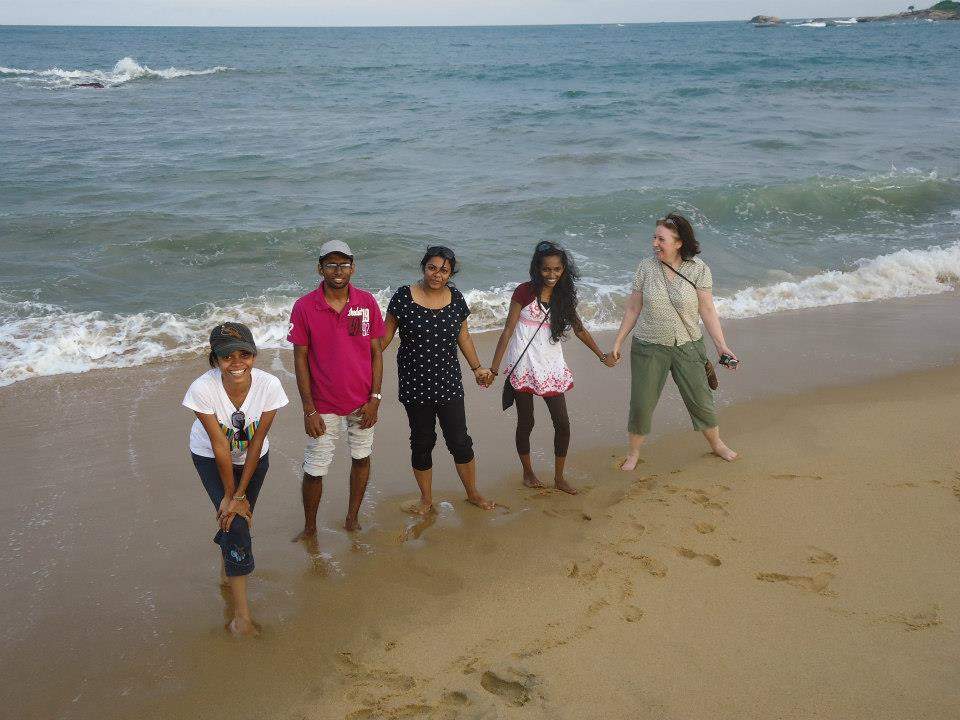
Helen’s story: Helen has always loved traveling. Hopeless at languages, she amazed even herself when she started to master German once living in Switzerland. Back home, she did a language degree and spent a further two years in Switzerland and four months in Germany. From those years, she has made life-long friends. Learning a language and living abroad has really helped her to get under the skin of a place. Married now with kids and a teaching job, the opportunities for “in-depth” travel have been limited. So when the British Council offered a school exchange trip to Sri Lanka, Helen grabbed the chance. It was a life-changing experience. Here’s her story.
I’ve always been restless. Eventually I escaped my provincial Irish town, moving to Switzerland to work as an au pair. Living in a different culture was exciting and thrilling and gave me an experience that was far more enriching than a two week holiday.
Eventually I settled down, got married, and had kids – and a proper grown-up job. I couldn’t just disappear off when I’d had enough. But the restlessness remained.
Recently, the chance to spend two weeks in Sri Lanka, first in a school and then traveling with a Sri Lankan family, was a turning point. I had to re-evaluate my life.
I tried to explain to Dimuthu’s father that he and his family had given me something money can’t buy: a genuine experience of a place – and real friendship.
I didn’t know Dimuthu beyond our email exchanges, yet when I arrived in Sri Lanka, her family embraced me as one of them. Dimuthu took me to extended family and friends all over the island, often in the most interesting parts of Sri Lanka. As a result, I saw a Sri Lanka most people never experience. I slept in Sri Lankan homes all over the island, ate with Sri Lankans, visited temples with them, and viewed the country through their eyes.
I also did all the things that tourists do, but it was the connection with the Sri Lankan people that will stay with me most. I’ll always remember the tractor-trailer ride to a rural temple near Aduradhapura, showering in a bathing suit in the garden of a farmhouse, flying down a country lane on a child’s bicycle with all the locals appearing to cheer on the “pale faced westerner.” I will never forget Dimuthu’s uncle showing me around his large vegetable garden in the beautiful highlands – or how his son stayed with me as I climbed the 5,000 steps to the top of Sri Pada (Adam’s Peak), encouraging me all the way. And there’s more; much more.
When Dimuthu’s father took me to the airport (three hours there to turn his van around to do the same home again), he apologized for the “lack of western comforts” in their home – and for not always “getting it right,” not knowing my culture. It was incredibly humbling: this family had given me so much, and I had not always got it right in their culture. I tried to explain to Dimuthu’s father that he and his family had given me something money can’t buy: a genuine experience of a place – and real friendship.
Back home, I’ve had much to reflect on. I realized there’s a whole world out there to experience. I’ve decided to quit my job and cycle to Istanbul with my son with the blessing of my supportive husband. A new chapter begins in 2014.
To read more about Helen’s traveling adventures, including tales of Sri lanka, check out her blog here.
Travelers are always asking us how they can “get off the beaten path” and have a “real” experience in a world that seemingly has very few “untouched” places left.
Here are some tips to get “up close and personal” on your travels:
- Work and live abroad
- Volunteer: Try WWOOFing or working on a Kibbutz, for example
- Organize a job exchange
- Travel real slow – on bike or walk
- Take a gap year and travel round the world, planning in plenty of extended stops
- Find paid work to fund your trip as you travel – and engage with the locals. It’s a win-win situation
- Fall in love with a local. Move out and move in – to their exotic foreign location
Unrealistic? Perhaps you have commitments to family and jobs. You can still experience the real place:
- Get involved with a short-term community project such as the Book Bus
- Find out if there are opportunities in the workplace that allows you to travel abroad
- Follow your passion around the world: take up a hobby or interest that enables you to meet locals in their country
- Stay on home-stays or in B&Bs rather than hotels or guest houses
- Bag a bed: try couch-surfing or similar accommodation exchanges
- Befriend a foreigner – and get an invite to their country
- Learn the language (even a few words can make a difference)
- Travel alone
- Take local transport to random places and surprise yourself
- Last but not least – Smile, be open, and think local
Writer’s bio
Check out Helen’s traveler profile to find out more about her writing and travels.
For more on making meaningful connections on the road, check out the following articles:
